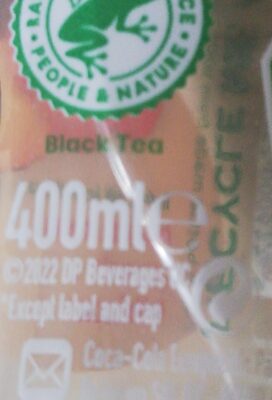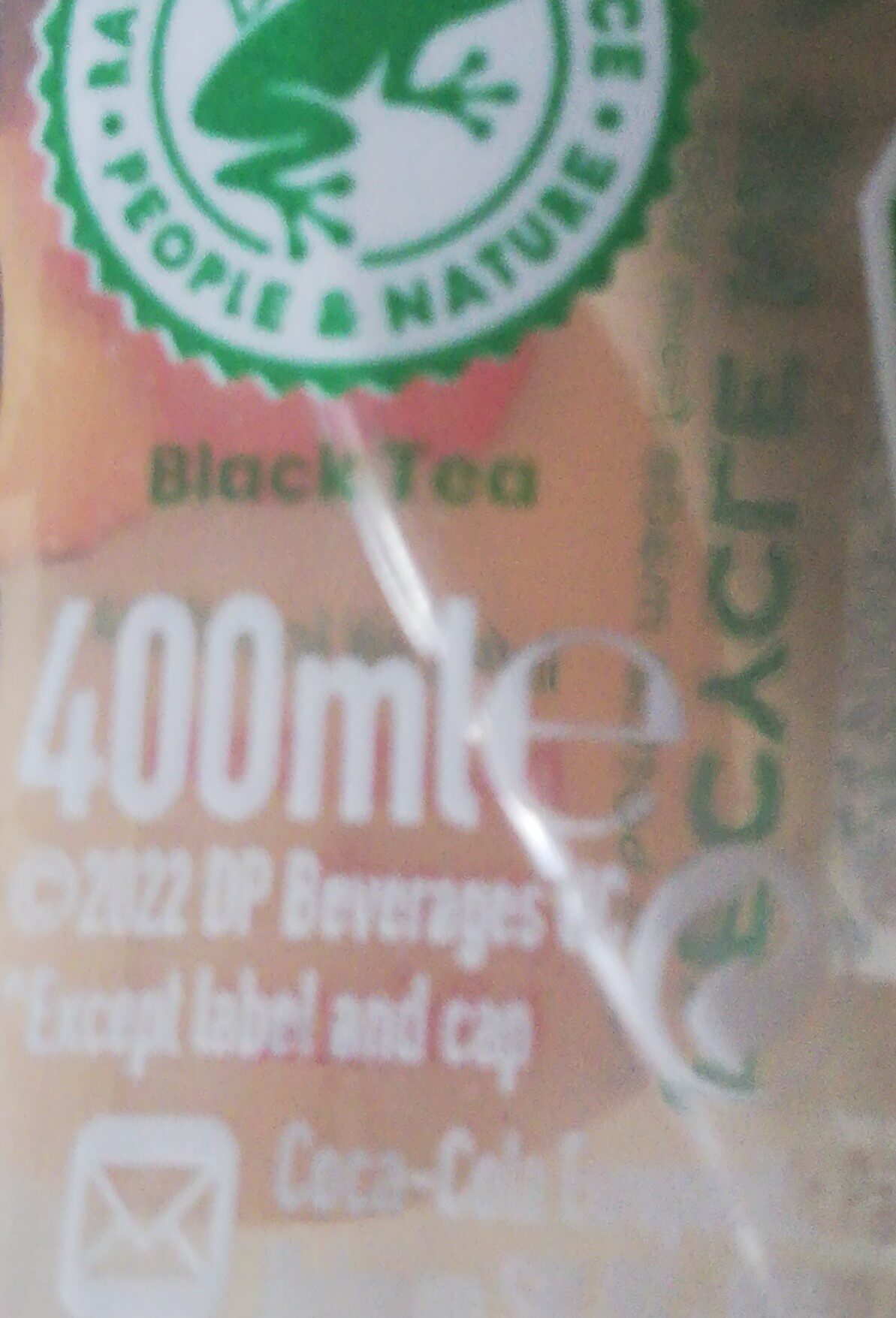Fuzetea Black Tea Peach Hibiscus - COCA-COLA - 400 ml
This product page is not complete. You can help to complete it by editing it and adding more data from the photos we have, or by taking more photos using the app for Android or iPhone/iPad. Thank you!
×
Barcode: 5449000237972 (EAN / EAN-13)
Quantitéit: 400 ml
Verpackungsart: en:Plastic, nl:Fles (plastiek), nl:dop (plastiek)
Kategorien: en:Beverages, en:Artificially sweetened beverages, en:Tea-based beverages, en:Iced teas, en:Peach flavored iced teas, en:Sweetened beverages
Labelen, Zertifizéierungen, Auszeechnungen:
en:Green Dot, en:Natural flavors, en:Rainforest Alliance, nl:Made-from-tea-leaves

Link to the product page on the official site of the producer: coca cola partner
Geschäfter: Colruyt
Country: Belsch, Frankräich, Lëtzebuerg (Land)
Matching with your preferences
Health
Inhaltstoffer
Food processing
Zousätz
Analys vun den Inhaltstoffer
Ernährung
Report a problem
Data sources
Product added on vun openfoodfacts-contributors
Last edit of product page on vun isoldes.
Produkt Säit och geännert vun aleene, annelotte, foodless, hectoralejandromedina, inf, kiliweb, leroy1223, packbot, plasticapp, quechoisir, roboto-app, savbran, scanbot, yuka.VEtaZk0vVS9tTWRha3RnZi94eU40UGxlbkpDVFEwcVFMOVFQSVE9PQ, yuka.Vm9BZ0NhMGxvTXRRd2Roand3alE5Y2xzOVphZ2ZGcTZOZEZMSVE9PQ, yuka.WUpJOU52a2FuTlFyaE1jR3B3ekozdnRUNEo2dFFHK3FNOFlmSVE9PQ, yuka.WWJwZERJSVRpOEEyaWNGazhVTE55LzRvM3Fha2NqeVRKY2M4SUE9PQ, yuka.sY2b0xO6T85zoF3NwEKvlmJlU4f6mmv_Bx3Vi0yi5Y6iEITmed9Pua_YMKs.







